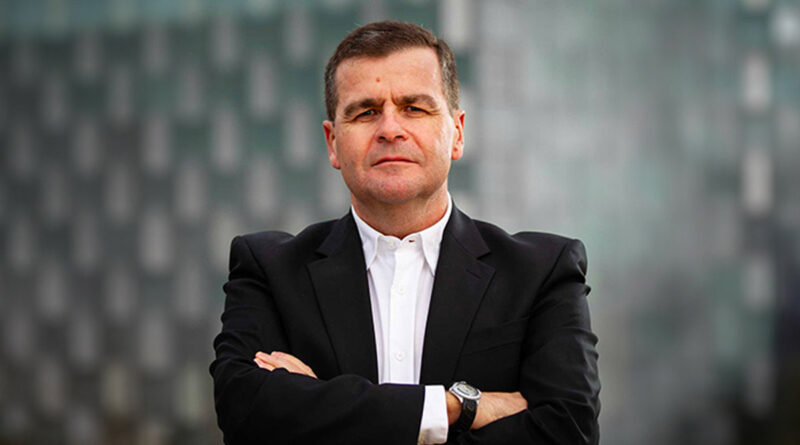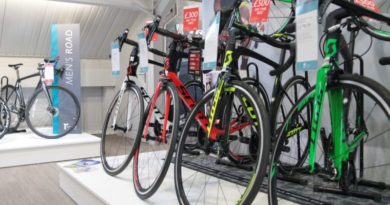Ambition – M&A and growth: Cristóbal Pérez on the future
In part 7 of this 7 part feature series, Cristóbal Pérez – a seasoned cycling industry professional with a track record of leading change – explores what the future could bring to our industry; the good, the bad, and the ugly. In each of these there is opportunity – if you can embrace the change required to unlock it.
First, bikes have lately sorted out crises very well. No matter if they were economic, or social/healthy ones. 2008, 2012, Covid… any of them meant a thrust for bicycles. It is easily justifiable that you get a bike because you lost your job, want to keep a healthy body and mind, it is affordable, you can share cycling time with family…
Next, the non-sporty bikes that are landing in our lives should bring a flourishing panorama, despite the bike industry. The hard work performed by advocates of the bike’s daily usage, the urgent need for solutions to life in cities, and the expected adaptation of the sector to the new landscape can only conclude an appealing future for the bike. Despite some Governments.
Beyond that, eBikes are as attractive as honey for bees for the market. We should be careful and not think of eBikes as MTB only, which are already reaching up to 90% of this category in some countries, but any other type of electrically assisted bike.
Bike makers should have the power to glimpse what is around the corner. Should.
For good and bad, It turned bikes into a shelter for money, ambitions, and Biblical-sized egos.
Maybe it is a good time to recall what I understand as a frequently forgotten motto: if you aim for sales only, you will never make it. First, you need to arrange the right framework for sales to become a consequence of your having done things right.
The first reaction of (some) vendors is increasing the product category in the naïve dream that, the more I offer, the more I sell. They want to cover you with any kind of bike gear with their logo on it: eyewear, shoes, saddle bags, helmets, and, of course, wheels. Pretending to be a head-to-toe source.
There are a few able to do it: Specialized/Roval, Trek/Bontrager, and Shimano. Sorry if I skipped any. For this, they previously had to become a brand, not only a maker. And it did not happen overnight. In many cases, those who have not achieved that brand status will have poured their time and money down the drain because their expectations were too high and their approach focused on money-only, too ambitiou$.
If you Google “bike news”, you will come across plenty of the bike/sports industry’s big companies willing to become a conglomerate by acquiring eyewear, saddle bags, helmets, and, of course, wheels makers to add to their crowded catalogue. That is, instead of becoming a comprehensive brand, they pretend to become a one-stop supplier.
Keep on scrolling down where you left off and discover how big guys who own a few bike brands, wanted to have more: one for road, for MTB, one for e-mtb, one for gravel, one for titanium, the one ruling here, the other one reigning there.
On some occasions, these movements obey a deep analysis and careful considerations that seem to advise you to go in that direction. As it happens in business, you can be mistaken. Normal to me. On some others, this happens because there is an empowered cyclist on the board of management/advisory. Someone with a power and racing victories-based background. Finally, there are times when this happens because of the messianic perception of (some) themselves. They did a simple math: more products, more turnover.
Maybe it was predictable or not, but now it is time to release the ballast, (try) to sell brands to competitors/funds, and tighten your (company) belt, if it was enough. This could be understood as a logical movement in the face of a sectorial crisis, but also as a costly response to the mine-is-bigger-than-yours poor understanding of what a business is.
Here it underlies a surprising inability to foresee, which is way different than predicting. The estimations for the future should be based on deep data analysis, the truth coming from the market through the commercial team, and the resources of the company to cope with the worst scenario imaginable.
It is about a wise mix of facts and intuition. Information is a powerful tool that along with the perception at the shopfloor level should help you to make a bravely prudent decision. You can think that bike A is doing well according to your knowledge and/or planned fabrication, but it might be happening that bike B is emerging to the detriment of A. If you do not step into shops daily, when you are aware of this, you will have already ordered one thousand bikes more with a nine hundred days delivery time.
It is time for tears, dismissals, and red numbers.
It is human and natural the ambition of growth. I admire people driven by it. But if you are doing well with a strong tailwind, it does not mean that it will keep on being like that with a strong headwind. For this, you will have to be cautious and not be blinded by magazine headlines and bonuses.
You can argue that this situation has no precedent, sure. Nobody was ready for the rise and fall of that magnitude because of the erratic behaviour of the world due to COVID-19. Sure. Agree, but you are paid to do things well.
There are two kinds of errors: operational or daily ones, a venial sin in the end. A different thing is judgment mistakes. Those are serious, if not mortal, and are not contemplated in your job description.
You can choose to become bigger just by buying all that surrounds you to stamp your logo on it. Or you can opt-in to consolidate your company, making a brand of it, having a culture, a different way of doing things, a motivated team, the right product for your targeted market, boosting your service capabilities, and reinforcing your awareness.
Maybe this will not drive you to spectacular numbers but to a more stable and controlled growing outlook.
To follow or connect with Cristóbal on LinkedIn, click here.
For links to parts 1, 2, 3, 4, and 5, of the series, ‘Unavoidable change: Cristóbal Pérez on the future’, start here.



